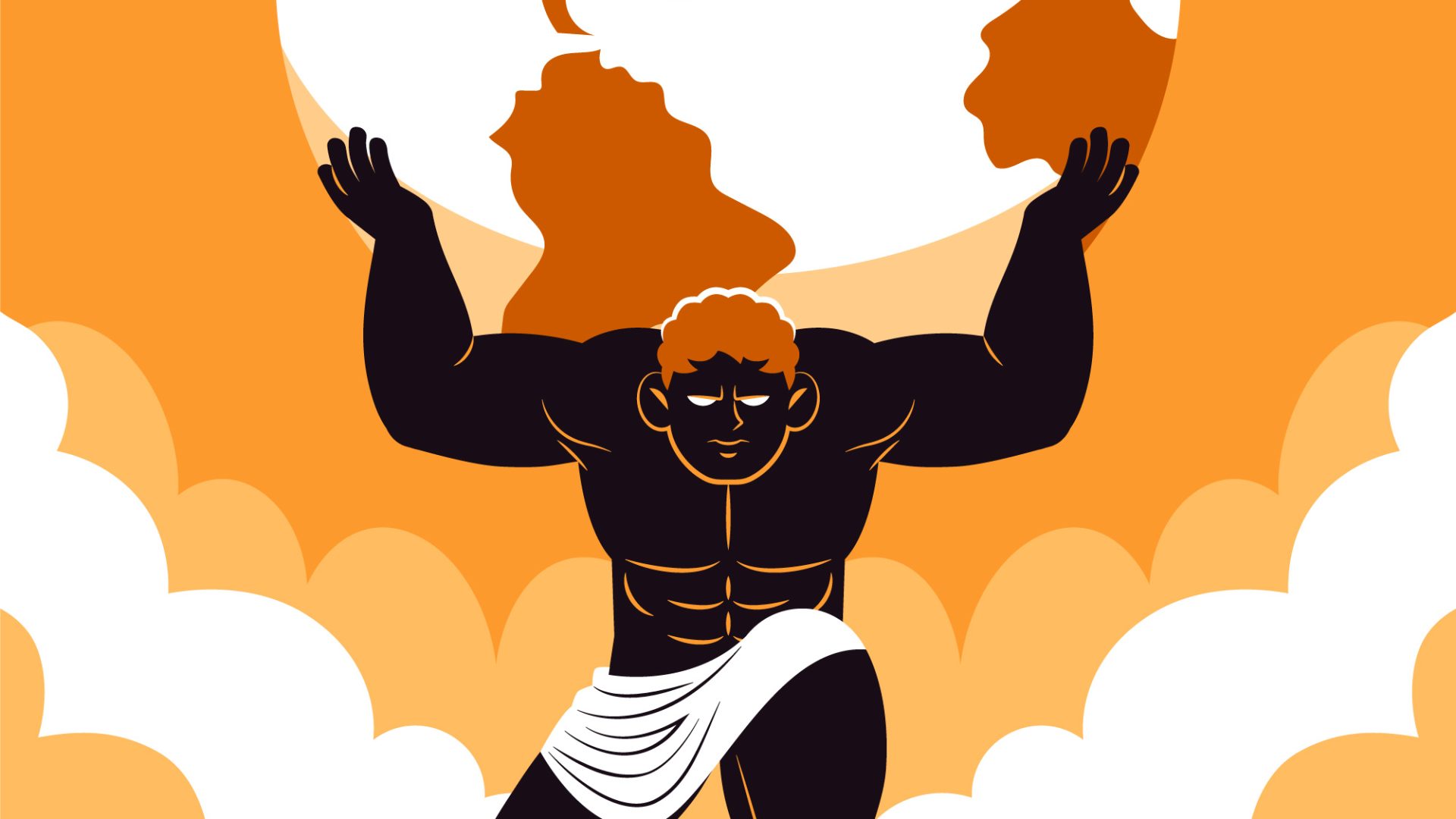As we mark Men’s Mental Health Month this November, it’s essential to recognize the silent struggles that many men endure—burdens as heavy as those shouldered by Atlas himself. Every day, men carry immense responsibilities for their families, friends, and workplaces, often concealing their emotional burdens. Society has conditioned men to suppress their struggles, equating vulnerability with weakness and leaving many feeling alone. These expectations isolate men when support is most needed, highlighting the urgency of reshaping our perspectives on men’s mental health.

Family Pressure
Consider young men growing up in single-parent households, often stepping into the role of “provider” or “man of the house” at a young age. This situation is known as “mother’s husband syndrome,” the role reversal forces young men to assume responsibilities well beyond their years as they fill the gap left by an absent father. These young men grow up too fast, shouldering adult burdens, often without anyone to support them. They suppress their needs, taking on emotional and financial responsibilities and sacrificing personal goals and aspirations.
Academic Pressure
A further illustration of the hidden weight men carry lies in higher education. At the University of The Bahamas, women outnumber men three to one. This disparity highlights a societal shift and points to a concerning trend of male underrepresentation in higher learning. When men struggle or fail in academics, society often interprets it differently than female failure. Many see male failure as a reflection of character or lack of ambition rather than a challenge to address and support.
On the other hand, women who face setbacks often receive encouragement and find pathways to improvement. For men, it can be seen as a weakness or a lack of drive, adding to the burden of shame and pressure to perform. This disparity in how society addresses male and female challenges can exacerbate the feeling of isolation for young men who are already struggling to meet society’s expectations.
Personal & Professional Pressure
This mental health crisis isn’t just a vague abstraction. In recent news, a local male police officer was embroiled in a public and professional nightmare. Following legal proceedings involving a female member of parliament, he faced drug-related charges. His struggles became overwhelming. Recently, he attempted to take his life, and only the timely intervention of his family saved him. His case is a stark reminder of the weight many men bear alone. In high-stress jobs or public roles, the pressure to remain strong and composed can become unbearable, with tragic results when help feels out of reach. This officer’s story is a high-profile example, but men face other, quieter pressures.
Ways to Support Men’s Mental Health
To truly support men’s mental health, we need to create a culture that values vulnerability as strength. Here are a few ways we can make this change:
- Redefine Strength to Include Vulnerability: Our culture has long celebrated physical strength in men. However, true strength includes asking for help and admitting vulnerability. Celebrating men who open up about their challenges can challenge outdated norms and encourage a healthier approach to masculinity.
- Support Men in Education: Recognizing the gender disparity in higher education at institutions like the University of The Bahamas should prompt action. We need programs encouraging men to pursue higher education and providing them with the support systems necessary to succeed. Mentorship, academic resources, and mental health services can bridge the gap and ensure men have pathways to success. Greek-lettered organizations like Alpha Phi Alpha and Phi Beta Sigma and civic organizations like the Gentlemen’s Club and others seek to empower young men and guide them to higher education, but more hands make the load lighter.
- Encourage Open Dialogue About Male Failure: Male failure should not be stigmatized or treated as a personal failing. Academic, professional, or personal setbacks are part of life. We need to shift the narrative to ensure that when men fail, they have the support and guidance they need to recover and grow, just as women do.
- Provide Support for Young Men in Single-Parent Homes: Programs and resources that support young men who find themselves in adult roles too early can make a difference. Mentorship, financial aid, and educational opportunities can relieve some of the burdens they carry and allow them to explore their dreams and potential.
- Normalize Mental Health Resources: Making mental health care accessible and socially acceptable for men is essential. We must prioritize mental health education and encourage men to seek help without fear of judgment.
Mental Health Resources
In The Bahamas, men seeking mental health support have access to a variety of resources and services designed to address their specific needs. The Bahamas Association for Social Health (BASH), established in 1991, provides:
- A residential treatment and rehabilitation program for adult men struggling with substance dependency.
- Offering therapies such as cognitive behavioural therapy.
- 12-Step facilitation.
- Motivational enhancement.
The Bahamas Mental Health Association (BMHA), founded in 1967, works to reduce mental health stigma through advocacy, education, and accessible services for all, including men.
Similarly, Brightside Bahamas offers psychotherapy, coaching, and mental health education aimed at helping individuals, including men, build healthier relationships with themselves and others.
The Bahamas Crisis Centre, while focused primarily on abuse, also provides counselling services that can benefit men dealing with emotional and psychological issues. Public health facilities, such as the Sandilands Rehabilitation Centre, also offer psychiatric care and counselling services supported by the government. For those seeking more personalized care, private practitioners, including licensed psychologists, psychiatrists, and counsellors, are available throughout the country. Men are encouraged to reach out to these organizations and providers to find the support best suited to their needs.
Conclusion
Men’s Mental Health Month serves as a potent reminder that men’s mental health struggles are both real and pressing, deserving our collective attention, empathy, and action. The challenges many men face—whether young men growing up in single-parent households, students navigating social and academic pressures, or adults balancing high-stress careers—often go unspoken. Like Atlas, countless men carry the weight of unyielding expectations, responsibilities, and unaddressed emotional burdens, often hidden from view. As a society, it is our responsibility to acknowledge these struggles and to break the stigma surrounding men’s mental health, creating a culture where asking for help is recognized as a courageous act and not a weakness.
Redefining what it means to be strong is essential; true strength lies not in silence or suppression but in self-awareness, openness, and resilience. When we champion mental health for all, we lay the foundation for a society where everyone, regardless of gender, is empowered to seek support and prioritize their mental wellness. Let’s commit to lifting the burden from those who, like Atlas, feel they must carry it alone. Together, we can build a compassionate, balanced, and mentally healthy world for everyone.
